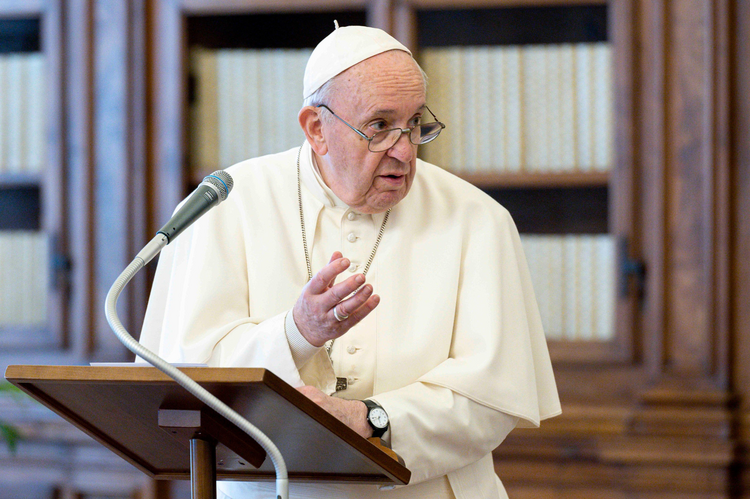Before you buy a book on Vatican Council II ask yourself if the author has used an irrationality to interpret the Council as a rupture with Tradition. Fr. Aidan Nicols op,Chris Ferrara, Roberto dei Mattei, Gavin D'Costa, Cardinal Joseph Ratzinger and most or all of the Jesuits or Dominicans, have used the false premise. So a false rupture is created with Tradition when there really is no rupture with the irrationality is avoided. - Lionel Andrades
Pope Francis: Vatican II must
be taught as part of church
teaching, or ‘you are not
with the church’
VATICAN CITY (CNS) -- Religious education must focus on leading people to a personal relationship with Christ and building a community of believers where the talents of each person are valued and where all go out to share the Gospel and serve the poor, Pope Francis said.
"The first protagonists of catechesis are those messengers of the Gospel, often laypeople, who generously get involved to share the beauty of having encountered Jesus," the pope said Jan. 30 to participants in a meeting organized by the Italian bishops' National Catechetical Office.
Catechesis must "express God's saving love, which precedes any moral and religious obligation on our part," he said. "'You are loved, you are loved' -- this comes first; this is the gateway."
Catechesis does "not impose the truth but appeals to freedom, like Jesus did," he said, and "it should be marked by joy, encouragement, liveliness and a harmonious balance which will not reduce preaching to a few doctrines which are at times more philosophical than evangelical."
However, he said, a catechist always must teach what the church teaches and that includes the vision and teachings of the Second Vatican Council.
"This is magisterium: the council is the magisterium of the church," he said. "Either you are with the church and therefore you follow the council, or if you do not follow the council or you interpret it in your own way, as you wish, you are not with the church."
"[Vatican II] is the magisterium of the church. Either you are with the church and therefore you follow the council, or if you do not follow the council or you interpret it in your own way, as you wish, you are not with the church."
"We must be demanding and strict on this point," the pope said.
"Selectivity with respect to the council" is something that has happened throughout the history of the church with its various councils, he said. "It makes me think of a group of bishops who, after Vatican I (1869-70), left with a group of lay people, of groups, to continue the 'true doctrine' that was not that of Vatican I."
"Today they ordain women," the pope said, apparently referring to the Old Catholic Churches that are part of the Union of Utrecht.
"Please," the pope told the group, "no concessions to those who try to present a catechesis that does not agree with the magisterium of the church."
Pope Francis also told the group that after five years of on-again, off-again discussions, the Italian bishops' conference "must begin the process for a national synod -- community by community, diocese by diocese."
The bishops, religious and laypeople who gathered in Florence in 2015 for the Italian church's national convention, held every 10 years, spoke about the idea of having a synod, but no formal steps were taken to organize it. "Now, take it up again. It's time," the pope said...
https://www.americamagazine.org/faith/2021/02/01/pope-francis-vatican-ii-council-second-church-teaching-239892








No comments:
Post a Comment